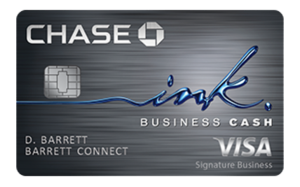
Contrary
Although I love talking all things points, miles and travel, I generally shy away from starting that conversation with strangers. If there’s time or if I feel I can help someone look at travel rewards in a different way, I might go for it, but the topic often mushrooms and becomes a time drain. When the topic does arise though, I’m often asked what the single best rewards credit card is. Some rewards cards have significant sign-up bonuses, some are great for the possibility of group travel or manufactured spending, and others because they offer category bonuses on things that you buy/use the most. There isn’t a single card that fits every person’s spend patterns, but there are clearly better rewards cards than others. The bottom line is that there are many fine rewards cards and picking the best one is subjective.
Best, But Not First
The most important aspect of rewards credit cards is to create value. Being rewarded for spend is key. I occasionally get goose bumps seeing people pay in cash at store registers, and debit cards are unfortunately still the rage with the average consumer. The amount of rewards generated for the least cost should be the foundation for judging which cards are better than others.
I think it’s important for great rewards cards to have a few key factors: a high sign-up bonus, and potential to earn rewards in the future (for as little money as possible). The first rewards card that I’d suggest for points and miles beginners is the Chase Sapphire Preferred. That’s not a controversial pick. Put 100 elite travel rewards minds in a room and the vast majority will come up with that same pick. Even though I recommend it as the go to card for people starting out to collect travel rewards, I don’t consider the Sapphire Preferred to be the best rewards card. For me, that title goes to the Chase Ink Business Cash.

First let’s look at the general specs on each card.
Chase Sapphire Preferred (CSP)
Card type: Personal
Sign-up bonus: 50,000 to 80,000 Ultimate Rewards (currently 50k)
Minimum spend to achieve sign up bonus: $4,000 in 3 months
Earning rates: 2X points on travel and dining at restaurants worldwide & 1 point per dollar spent on all other purchases
Foreign transaction fees: None
Points transfer options: point transfers to leading airline and hotel loyalty programs
Chase travel portal: Achieve 25% more value when points are redeemed for airfare, hotels, car rentals and cruises through Chase Ultimate Rewards (For example 50,000 points are worth $625 toward travel)
Blackout dates: None
Annual fee: $95
Annual fee waived in year 1: Yes
Other important benefits: Primary rental insurance on car rentals
Summary: You basically get 12-13 months of use from this card without an annual fee. The ability to earn more rewards (2x) on travel and dining is great for most people. The car rental insurance is a lesser known benefit that really adds significant value to the card as well. Chase still has some really nice travel partners that points can be transferred to, and the the ability to do so with this card is huge.
Chase Ink Business Cash
Card Type: Business
Sign-up bonus – 20,000 to 50,000 Ultimate Rewards (currently 50k)
Minimum spend to achieve sign up bonus: $3,000 in 3 months
Earning rates: 5X points at office supply stores, internet, cable and phone services; 2x points at gas stations and restaurants (for the first $25k in spend, only 1x after that)
Foreign transaction fees: 3%
Points transfer options: none (need annual fee Chase card to transfer Ultimate Rewards points)
Chase travel portal: not available for this card, must have annual fee card linked with Ultimate Rewards
Travel blackout dates: not available for this card, must have annual fee card linked with Ultimate Rewards
Annual fee: $0
Annual fee waived in year 1: Yes and every year after
Other important benefits: Primary rental insurance on car rentals
Summary: The fact that this no annual fee card offers primary collision damage waiver coverage for car rentals is an incredible benefit. The ability to earn 5x on most spend via gift cards purchased in store and online at office supply stores (and websites that code as office supply/5x category bonus) is also massive. The card also has manufactured spend exposure, basically allowing a user to earn 125,000 Ultimate Rewards each year at no cost, and possibly a profit.
Here’s some examples of where you can earn at least 5x via purchasing gift cards online or in stores at office supply stores (such as Staples and Office Max/Depot):
Grocery: Whole Foods, Amazon, Target
Department Store Shopping: Nordstroms, Bloomingdales, Macys, JC Penney, Kohls, Sears
Big Box: Best Buy, Home Depot, Lowes, Sears
Other Shopping: Amazon.com, American Eagle, Aeropostale, Athleta, Baby Gap, Banana Republic, Barnes & Noble, Bath & Body Works, Bed Bath & Beyond, Build A Bear, Cabelas, CB2, Crate & Barrel, Gap, Groupon, eBay, Facebook, Kirkland, Nike, Petsmart, Overstock, REI, Sur La Table, etc.
Communication: T-Mobile, Total Wireless, Virgin Mobile, TracFone, Simple Mobil
Travel: Southwest, Airbnb, Hotels.com
Gas: Shell
Entertainment: AMC, Gamestop, Golden Nugget, Netflix, iTunes, Regal, Netflix, Spotify, Stubhub, Xbox
Food: Applebees, Boston Market, Buca di Beppo, Buffalo Wild Wings, Burger King, Chipotle, Chili’s, Cold Stone Creamery, Dave & Busters, El Pollo Loco, Firehouse Subs, Giant Food, Safeway, Starbucks, Whole Foods Market, and many more…
Personally I love buying Amazon, Airbnb, Whole Foods, Nordstroms, Chipotle, Starbucks, Hotels.com, and Target gift cards at Staples – all with no markup, and all earning 5x (well Airbnb can earn 6x via an additional Delta mile through the Airbnb/Delta portal, and other deal stacking possibilities may exist as well).
If you max out the $25,000 in 5x spend on the Ink Business Cash card, and include the sign-up bonus that’s 175,000 (125,000+50,000) Ultimate Rewards earned in the first year alone. Each year after (also maxing out the 5x category bonus) is an additional 125,000 points. Spending the same $25,000 on the Sapphire Preferred, even at 2x, would only accrue 50,000 Ultimate Rewards (plus the 50,000 sign up bonus), or 100,000 UR’s total. However, after year 1 the $95 annual fee hits and that 50,000 points (from the same $25k spend) for the Sapphire Preferred is now dwarfed by the 125,000+ points that can still be earned via the Ink Business Cash. In other words, taking all of the benefits and earning potential into account in the first year, both cards are great and pretty comparable. In year 2 though, the Chase Ink Business Cash really shines and does so into the future as long as Chase keeps the card alive.
Downside
There are at least five significant drawbacks to the Ink Business Cash card:
- Its’ a business card and not everyone has (or wants) a business
- You can’t transfer points to any of Chase’s great parter airline or hotel partners. You need an annual fee Ultimate Rewards earning Chase card to do that. That means getting another credit card if you want to actually transfer points to airlines and/or hotels.
- You can’t book travel (car rentals, hotels, airfare) through the bank’s travel portal at 1.25 to 1.5 cents per point like other top annual fee cards in the Ultimate Rewards portfolio
- Those living outside of metro areas probably won’t get the same benefit from this card as those with greater access to office supply stores (and the ability to spend the gift cards at well known merchants).
- Manufactured spend isn’t for everyone. If you don’t know how to capitalize on the negative cost Visa and Mastercard promotions to maximize the 5x, then this card is still very good, but may not be the best fit for you.
Summary
The main reasons why I rate the Ink Business Cash so highly is that you can earn a massive amount of Ultimate Rewards, which are one of the most valuable rewards currencies, with no annual fee, year after year at essentially no cost. You can also earn 5x Ultimate Rewards on most things you buy day to day and having auto insurance on rentals cars is also very significant. Don’t forget the card has been offering (and currently still offers) 50,000 sign-up bonus points, and that the Ink Plus and Bold cards are now both discontinued (or not available for new applicants). That makes this card the last of it’s kind, increasing it’s value. For everyday spend and for most consumers, I’m also very high on the Alliant Credit Union Visa Signature card that earns 3% cash back (first year, 2.5% each year after).
I think for points and miles beginners, I’d start by getting the Sapphire Preferred card first, and then follow with this card immediately after if possible. With everything taken into account, I don’t see another rewards card that offers as much value as the Chase Ink Business Cash.
